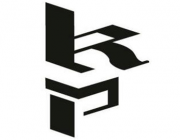Aya Elyada
39340
Course Aims:
The Protestant Reformation, which brought about a new religious order in Europe from the 16th century onward, had profound implications also for the social, cultural, and political order in the early modern period, and for the power-relations between different social groups. The course will explore the influence of the Reformation on the attitudes toward women and on the power-relations between the genders in the Protestant territories, especially in the German-speaking lands. We shall discuss, for example, the attitudes of Luther and other Reformers toward women and their role in the Protestant social order; representations of women and womanhood in the popular culture of the time; gender-related aspects of the witch-hunt during the 16th and 17th centuries; and various forms of "feminine" crime, such as prostitution, fornication, and abortions.
On successful completion of this module, students should be able to:
- Explain the main principles and assumptions underlying the field of the history of women and gender
- Describe the status of women and the attitudes toward them in Europe on the eve of the Reformation
- Discuss the attitudes of Reformers toward women and gender questions
- Assess the impact of the Reformation on the lives of women in 16th-century Germany
- Discuss the responses of women to the Reformation and assess the differences between them and the responses of men
- Analyze historical documents
- Discuss items of research literature and identify their main arguments
- Write an independent research paper in the field of women and gender in early modern Germany

